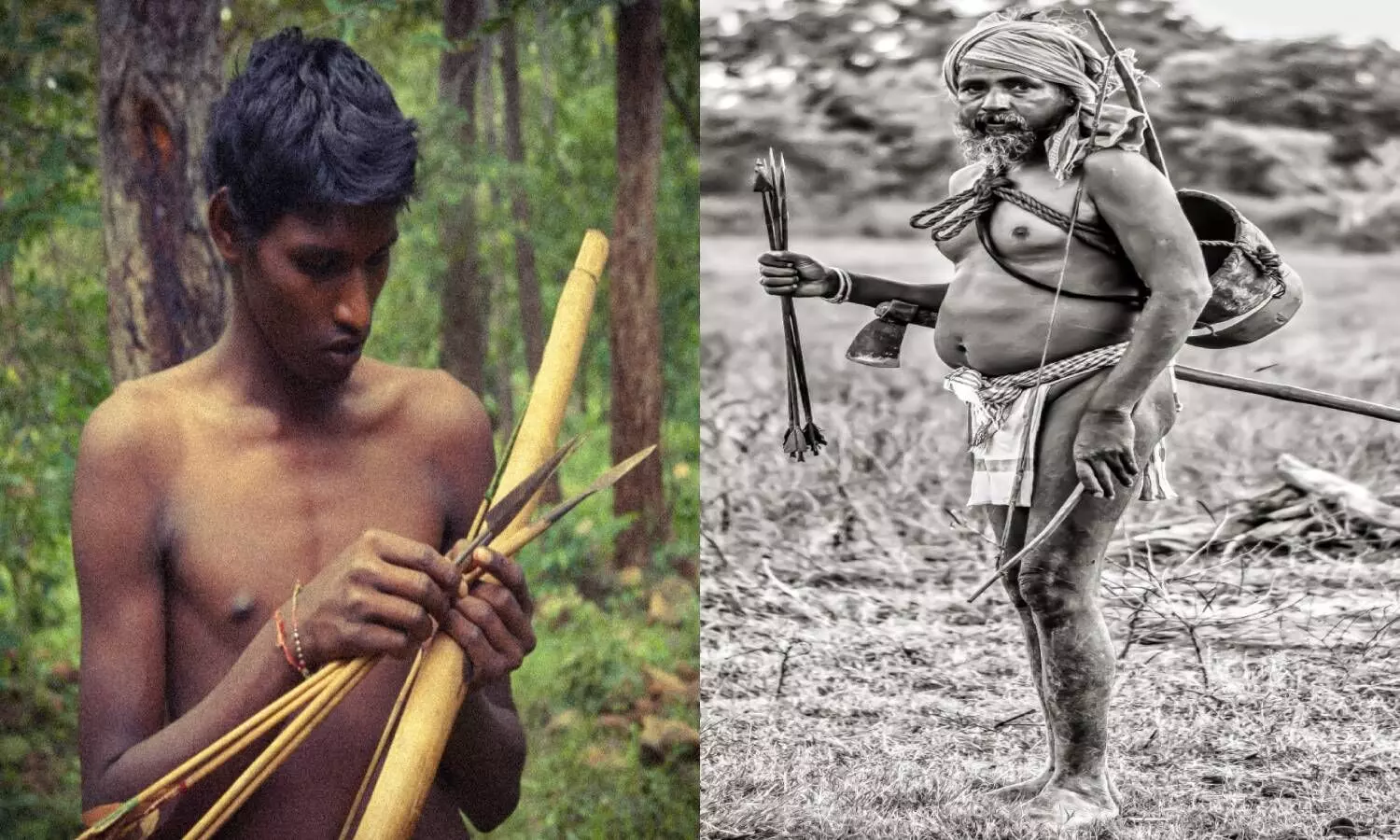Chenchus of Telangana's Nallamala Forest: Their story, agony, and hope
Despite all setbacks, Chenchus are very optimistic about their culture. Chenchus are very keen to share their stories because they felt their voices are unheard.
By Yasar Sharief
"I lost my teen son because of malaria"
"Forest is like our mother"
"We do not hunt tigers we depend on them, healthy tiger population means healthy forest"
"Honey bee population is declining, because of chemical pesticides used for cotton crops; we depend on honey for food and livelihood"
"Chenchus are addicted to cheap liquor made by non-tribes, it is killing our people"
The above lines are of Chenchu tribe people the inhabitants of "Sarpally" hamlet (Amrabad tiger reserve) of Nagarkurnool district of Telangana. The young sarpanch of that hamlet introduced me to the Chenchu people who live there. I confront Chenchu people and heard some interesting yet heart-wrenching stories of Chenchus. Actually, Chenchus are of two types, one who live in core forest and other who live in hamlets with other communities.
Chenchus are not traditional farmers they farm for just six months a year and depend on forest products for the rest of the year. They cultivate legumes, millets, cucumber, corn, etc. for six months, they follow shifting cultivation. In the recent past, Chenchus are being forced to cultivate cotton. In the past central government deployed people from other communities to join Chenchus and teach farming but we are not interested in commercial cropping said middle-aged Chenchu. This primitive tribal group depends on forests for food like honey, tubers, wild leafy vegetables, squirrels, and monitor lizards. They do not bother with any commercial crop or money; they collect raw material for a broom, medicinal seeds like 'Nux Vomica' and sell them in the market or to the government; with that money they buy food. Sometimes they exchange forest foods/products with non-tribes for food grains; the barter system plays a vital role in the life of Chenchus. They said that these days rainfall pattern has been changed, they are unpredictable.
Credits: Liladhri,a Chenchu tribal man
Wild Honey is the staple food for Chenchus, they collect honey to consume and sell extra honey to other communities. They know how to detect honey bees and honeycomb, they carefully follow traces of pollen on trees and find honeycomb which is inside the trunk of a tree. They collect honey by climbing trees; one person climbs the tree to collect honey while another (brother-in-law of person who climbs the tree) has to wait down to safeguard the person who climbed the tree. The logic of Chenchus here is brother-in-law would never be reckless of his sister's husband who climbed the tree. Chenchu people said that because of intensive cotton cropping non-tribes are using a chemical pesticide that is killing honey bees too. The population of the honey bees is declining which is leading to less honey production, less honey means less nutrition for our children. One's avarice is the other's despair.
Chenchus are living in harmony with forests; they collect food or forest products. They said, "We are not scared of Tigers. Tiger is very important for the forest. We always tend to protect tigers; if any stranger comes into the forest we immediately ask them the reason. We sometimes fight with poachers."
They know the wild plants which can survive with no water and in harsh summer conditions. Even after repealing uranium mining plans in the Nallamala forest, some people are coming to forests with ideas of uranium mining, a Chenchu added. Even while fishing, we follow the 'Pole and line' method to reduce catch, another Chenchu said. Chenchus believe men and women are equal. Women come along with their husbands to forests for food.
These days Chenchus are facing many problems. They are losing children because of malaria and tuberculosis. They have inadequate health service systems; they have no access to proper medical health care. Of course, Chenchus have their own treatment system for many diseases but they could not control/cure some diseases. Another big evil for Chenchus is 'Cheap liquor'; it is being produced by other communities. Men of Chenchu are very much addicted to that liquor. Chenchus have their own liquor made up of seeds available in forests that are not harmful. But this harmful liquor is exhausting money from their pockets later exhausting lives. This is rupturing discipline of families.
Despite all setbacks, Chenchus are very optimistic about their culture. Chenchus are very keen to share their stories because they felt their voices are unheard. They are people with a lot of gratitude. I think it is not good to look at all cultures and communities through a single lens; every community in our country has a different culture, if the government tries to alter things we may not see these cultures and communities in the future.